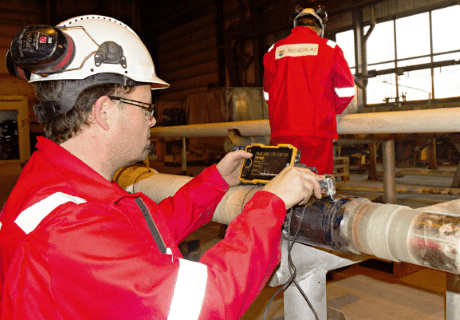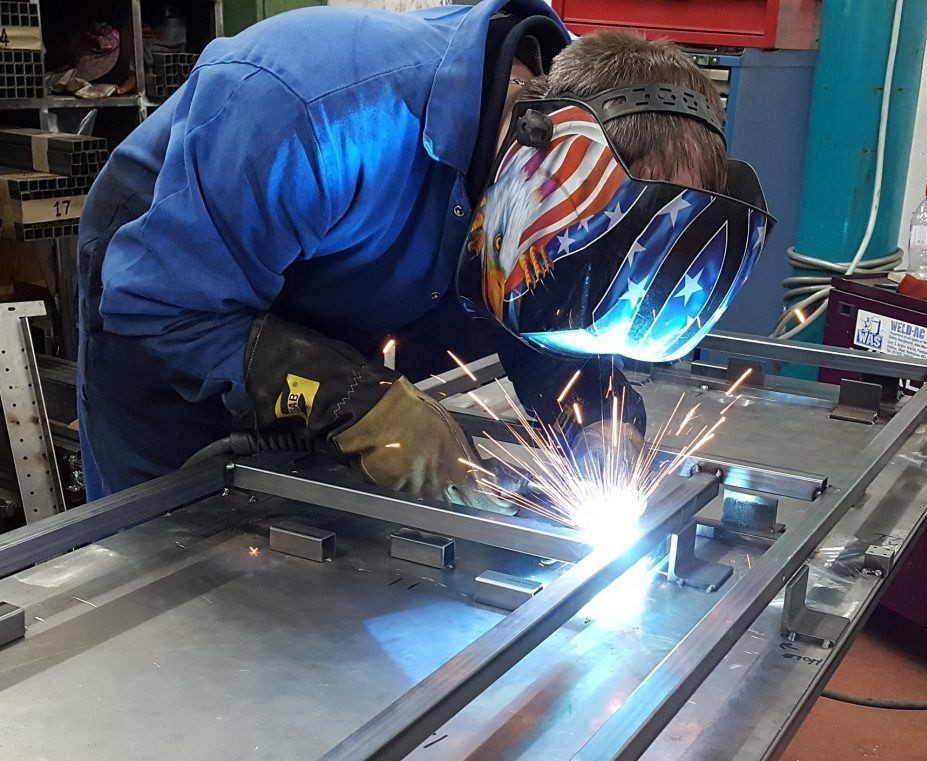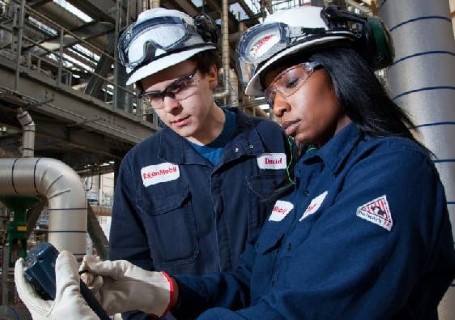COURSE OVERVIEW
FACILITY INTEGRITY, INSPECTION, METALLURGY & CORROSION ENGINEERING

OVERVIEW
| COURSE TITLE | : | FE0751 : Magnetic Particle Testing Level II Training & Certification (ASNT, SNT-TC-1A) |
| COURSE DATE | : | Nov 11 - Nov 12 2024 |
| DURATION | : | 2 Days |
| INSTRUCTOR | : | Mr. Luis Lopez Days |
| VENUE | : | Abu Dhabi, UAE |
| COURSE FEE | : | $ 2750 |
| Register For Course | ||
OTHER SCHEDULED DATES
| Date | : | May 13 - May 14 (2 Days) | Location | : | Al Khobar, KSA | Classroom Fee (US$) | : | $ 2750 | Course Info |
| Date | : | Aug 12 - Aug 13 (2 Days) | Location | : | Doha, Qatar | Classroom Fee (US$) | : | $ 3250 | Course Info |
Course Description
This practical and highly-interactive course includes various practical sessions and exercises. Theory learnt will be applied using our state-of-the-art equipment. This course is designed to provide participants the theory lectures and practical training with a preliminary understanding of Magnetic Particle Testing (MT) as per the ASNT Recommended Practice No. SNT-TC-1A for Personnel Qualification and Certification in Nondestructive Testing. The course is designed to provide delegates with a detailed and up-to-date overview on magnetic particle testing. It covers the principles and theory of magnetic particle testing; magnets and magnetism; direct current, direct pulsating current and alternating current of flux fields; the effects of discontinuities on materials including design factors and the relationship to loadcarrying ability; and magnetization by means of electric current using circular techniques and longitudinal technique. Participants will be able to select the proper methods of magnetization; apply demagnetization procedures; and list the various types of equipment such as portable, stationary, automatic, multidirectional units, liquids and powders, ultraviolet radiation type and light-sensitive instruments. Further, participants will be able to assess the types of discontinuities in casting, ingots, wrought sections, parts and welds; and implement systematic evaluation techniques using various standards and defect appraisal as well as quality control of equipment and processes
TRAINING METHODOLOGY
This interactive training course includes the following training methodologies as a percentage of the total tuition hours
LecturesWorkshops & Work Presentations
Case Studies & Practical Exercises
Videos, Software & Simulators
In an unlikely event, the course instructor may modify the above training methodology before or during the course for technical reasons.
VIRTUAL TRAINING (IF APPLICABLE)
If this course is delivered online as a Virtual Training, the following limitations will be applicable
| Certificates | : | Only soft copy certificates will be issued to participants through Haward’s Portal. This includes Wallet Card Certificates if applicable |
| Training Materials | : | Only soft copy Training Materials (PDF format) will be issued to participant through the Virtual Training Platform |
| Training Methodology | : | 80% of the program will be theory and 20% will be practical sessions, exercises, case studies, simulators or videos |
| Training Program | : | The training will be for 4 hours per day starting at 09:30 and ending at 13:30 |
| H-STK Smart Training Kit | : | Not Applicable |
| Hands-on Practical Workshops | : | Not Applicable |
| Site Visit | : | Not Applicable |
| Simulators | : | Only software simulators will be used in the virtual courses. Hardware simulators are not applicable and will not be used in Virtual Training |
RELATED COURSES

FE0730 : Liquid Penetrant Testing Level-I Training & Certification (ASNT, SNT-TC-1A)
- Date : Jun 03 -Jun 03 / 3 Days
- Location : Abu Dhabi, UAE
- Course Details Register

FE0930 : API 577: Welding Inspection and Metallurgy (API Exam Preparation Training)
- Date : Jun 09 -Jun 13 / 3 Days
- Location : Abu Dhabi, UAE
- Course Details Register

FE0048 : Welding and Cutting
- Date : May 19 -May 23 / 3 Days
- Location : Dubai, UAE
- Course Details Register

FE0935 : API 571: Damage Mechanisms Affecting Fixed Equipment in the Refining, Petrochemical & Petroleum Industries (API Exam Preparation Training)
- Date : Nov 12 -Nov 16 / 3 Days
- Location : Istanbul, Turkey
- Course Details Register
